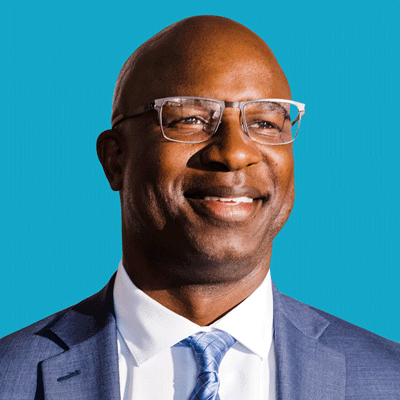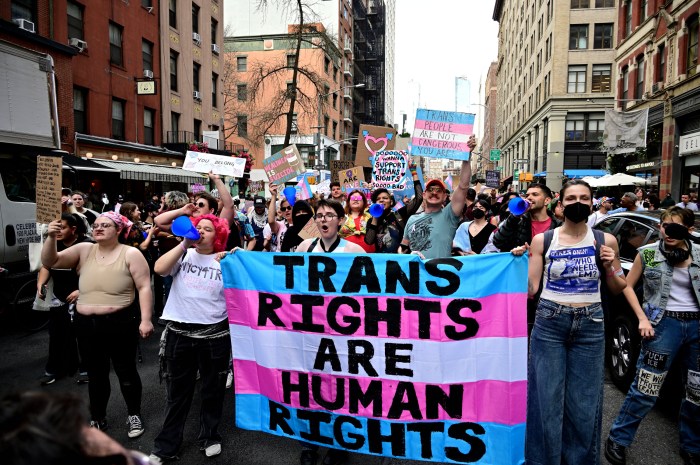Bronx/Westchester Congressmember Jamaal Bowman introduced a piece of legislation aimed at fighting the climate crisis by upgrading public school infrastructure and addressing historical inequities.
Bowman spoke outside of John Philip Sousa Junior High School in the Bronx to rally support for the bill, dubbed the Green New Deal for Public Schools Act, which proposes investing $1.43 trillion in federal funds over the next 10 years to update school infrastructure to be able to deal with and help repair the climate crisis.
“We see rising sea levels and we see the flooding and damaging of property, ” Bowman said. “We see record number temperatures out west where you have places like Utah reaching peaks that they never seen before…climate change is real, it’s here and it’s and we need to do something about it.”
Schools, Bowman added, as the “heartbeat” of communities need to be at the center of climate change solutions and be epicenters for clean, green, renewable energy not just for themselves but for their larger surrounding communities. One of the primary goals of the ambitious investment is to allow schools to end their dependency on fossil fuels and transform them into renewable “oasis” of energy.
If passed—the bill was introduced to the House of Representatives and currently has 22 co-sponsors— the legislation would fund 1.3 million jobs per year and reduce the country’s annual CO2 emissions by 78 million metric tons, roughly the same as taking 17 million cars off the road, according to the Congressmember.
Here is a breakdown of the proposed investment:
- $446 billion in Climate Capital Facilities Grants and $40 billion for a Climate Change Resiliency Program
- Climate Capital Facilities Grants will fully fund healthy green retrofits for the highest-need third of schools, as measured by the CDC Social Vulnerability Index, and offer a mix of grant funding and no- or low-interest loans for the middle and top thirds. Grants will cover two-thirds and one-third of retrofit costs for these schools, respectively.
- $250 billion in Resource Block Grants
- Resource Block Grants will fund staffing increases, expanded social service programming, and curriculum development at high-need schools. The program will allow Local Educational Agencies across the country to hire and train hundreds of thousands of additional educators and support staff, including paraprofessionals, school psychologists and counselors, and learning specialists. The funds may also be used to design locally-rooted curricula; adopt trauma-informed, culturally responsive, and restorative justice practices, to move towards a “whole child” approach to public education; and partner with community organizations to offer a range of services to schools and surrounding neighborhoods, such as after-school programs.
- $100 million for an Educational Equity Planning Grants Pilot Program
- Educational Equity Planning Grants will encourage neighboring Local Education Agencies to form regional consortia, which will receive funding to conduct extensive community outreach, identify the historical and current sources of educational disparities within the region, and create and implement a Regional Education Equity Plan to address those disparities. This pilot program is modeled on the U.S. Department of Housing and Urban Development’s Sustainable Communities Regional Planning Grants, which are designed to encourage equitable, locally-driven economic development.
- $695 billion over 10 years for Title I and IDEA (Individuals with Disabilities Education Act) increases
- This bill proposes quadrupling Title I funding to reach $66 billion annually to support schools and districts with students living in poverty, as well as increasing funding for IDEA Part B to reach $33 billion annually to support students with disabilities.



































